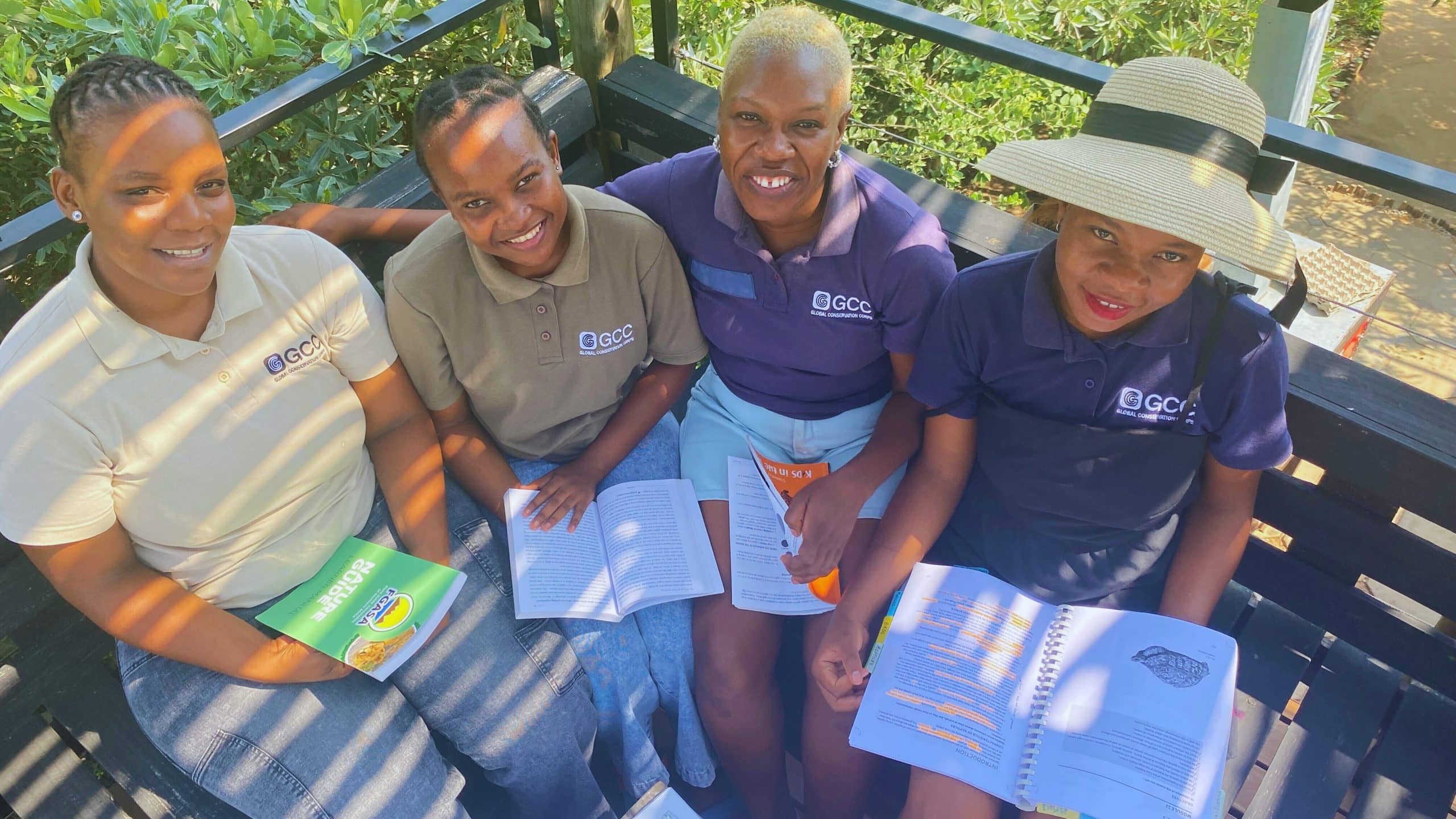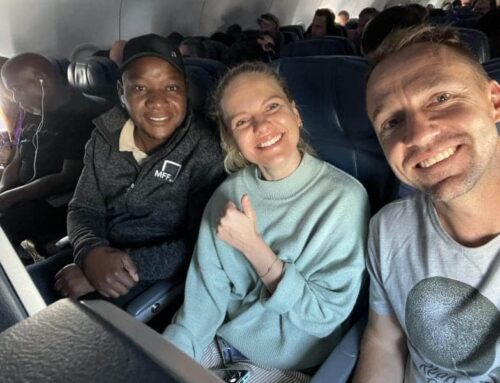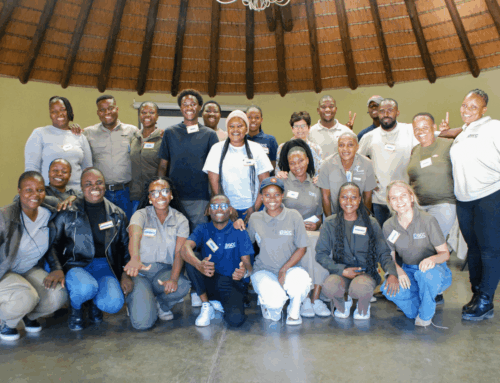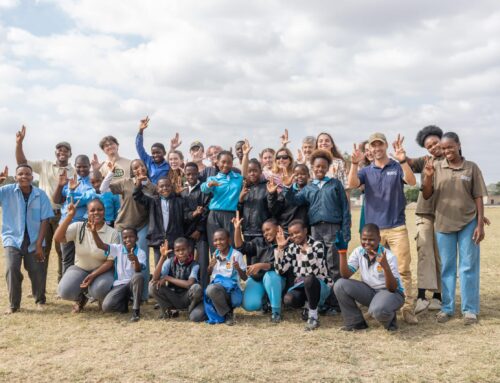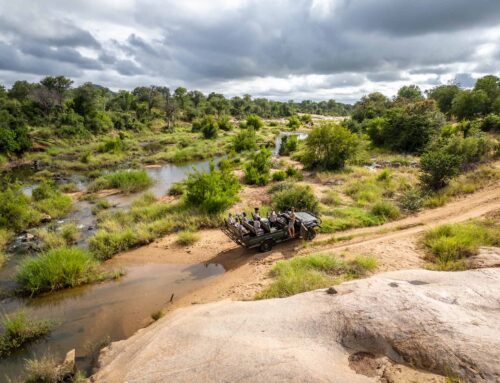The Future Rangers Program: 2025 Strategic Overview
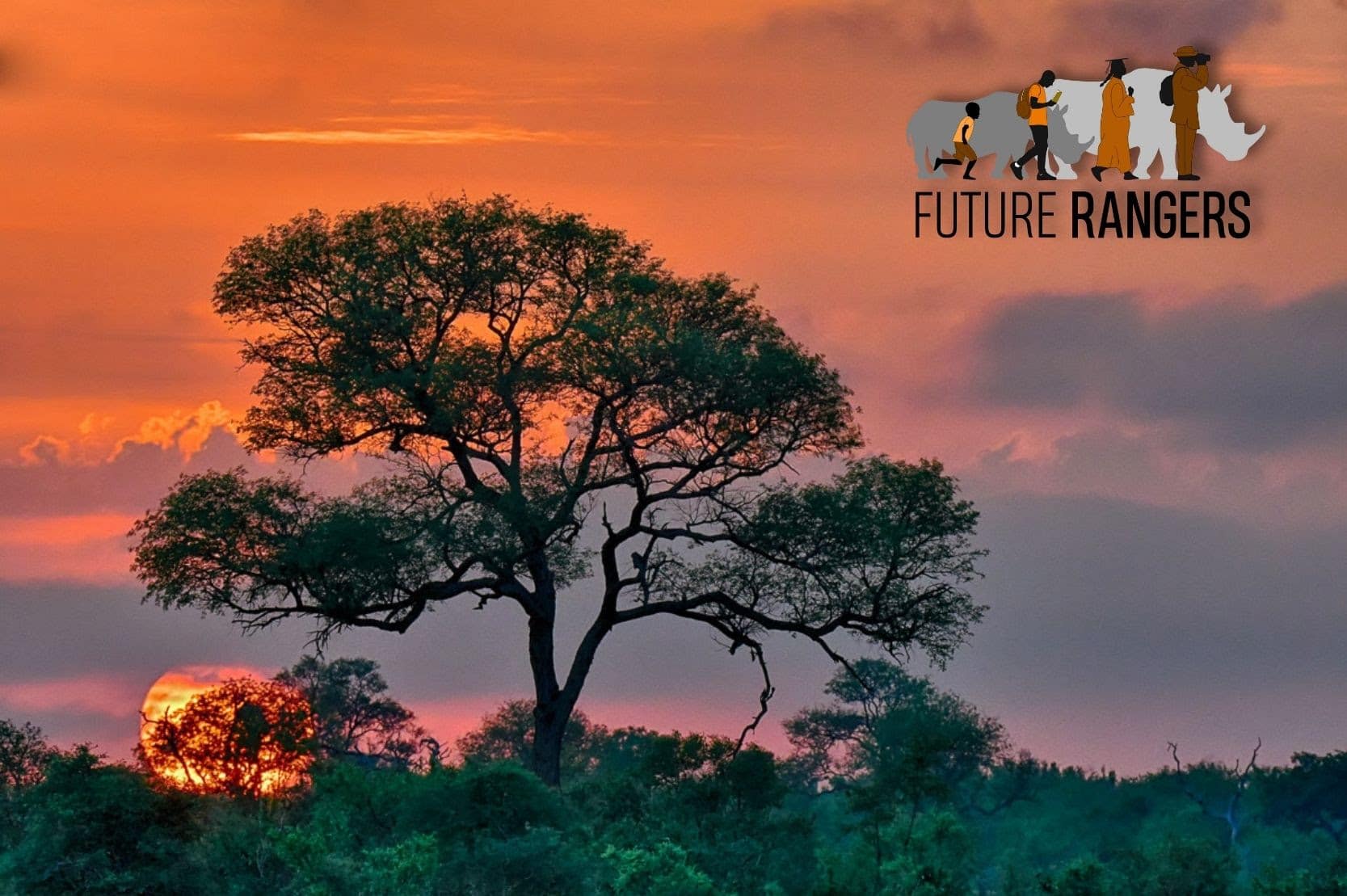
No time was wasted with the arrival of our new GCC vehicle. Our first stop? The world-famous Kruger National Park, of course! Each group of Ambassadors (grades 10 & 11) from our partner high schools (Mahlale, Dayimani, & Sokisi) finally experienced the quintessential safari adventure: departing before sunrise, racing to Orpen Gate to beat the crowds, and embracing the gamble of game viewing in Kruger. Would they be rewarded with exciting wildlife sightings, or would the vast, untouched landscape stretch before them in serene stillness, devoid of a single moving creature?

Mahlale Ambassadors were treated to the sight of numerous elephants.
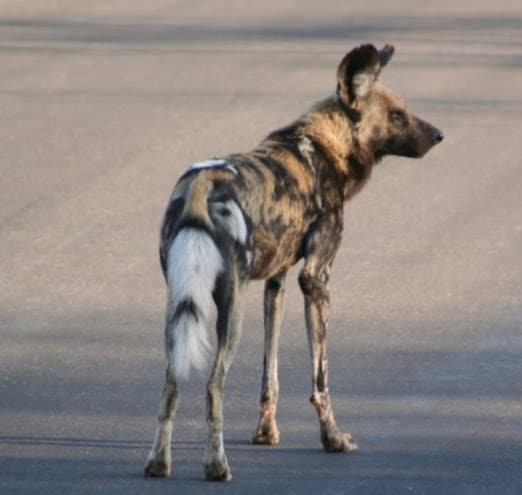
Dayimani Ambassadors struck gold with a rare wild dog sighting.
Now we face a new challenge: Over 55% of youth in our regions, especially females, cannot find employment or further education after graduation.
If the students we’ve collectively inspired, trained and motivated cannot find employment and benefit from wildlife, we will not have achieved the ultimate goal of developing the next generation of local leadership in conservation. Therefore, this moment is particularly critical as our first cohort of Grade 12 students, whom we’ve nurtured since 2017, prepare to graduate. For seven years, we’ve watched these young conservationists grow from curious children into passionate wildlife advocates. To support their successful transition from high school towards gainful employment, we’re launching the Graduates program in 2025 – an after-school program for top performers. We’ve selected 15 outstanding Grade 12 students across our 3 High Schools and will provide them with dedicated coaching and mentoring to secure internships, higher education placement (university or trade school), and employment opportunities in 2026.
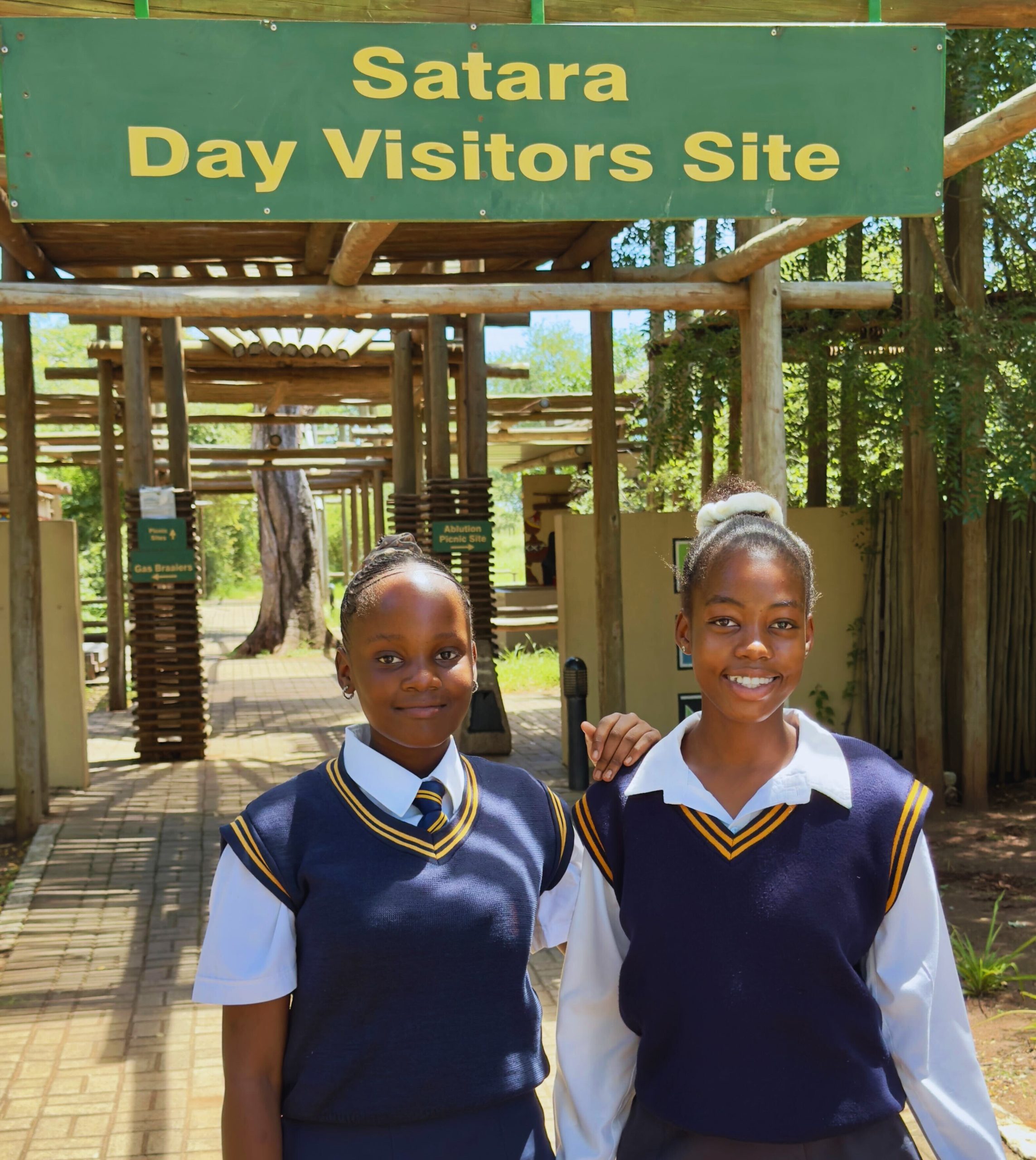
In addition to 150km (90 miles) traversing the reserve, the day included a visit to Satara Rest Camp where SANParks officials gave a tour. Our students proved to “know their stuff” and were complimented by Kruger staff on their knowledge of the natural world. We are proud!
This field trip is a milestone for the Future Rangers Program, reinforcing our holistic approach to conservation education. While most of our students live within 20km (12 miles) of the park, many had never set foot within its borders.
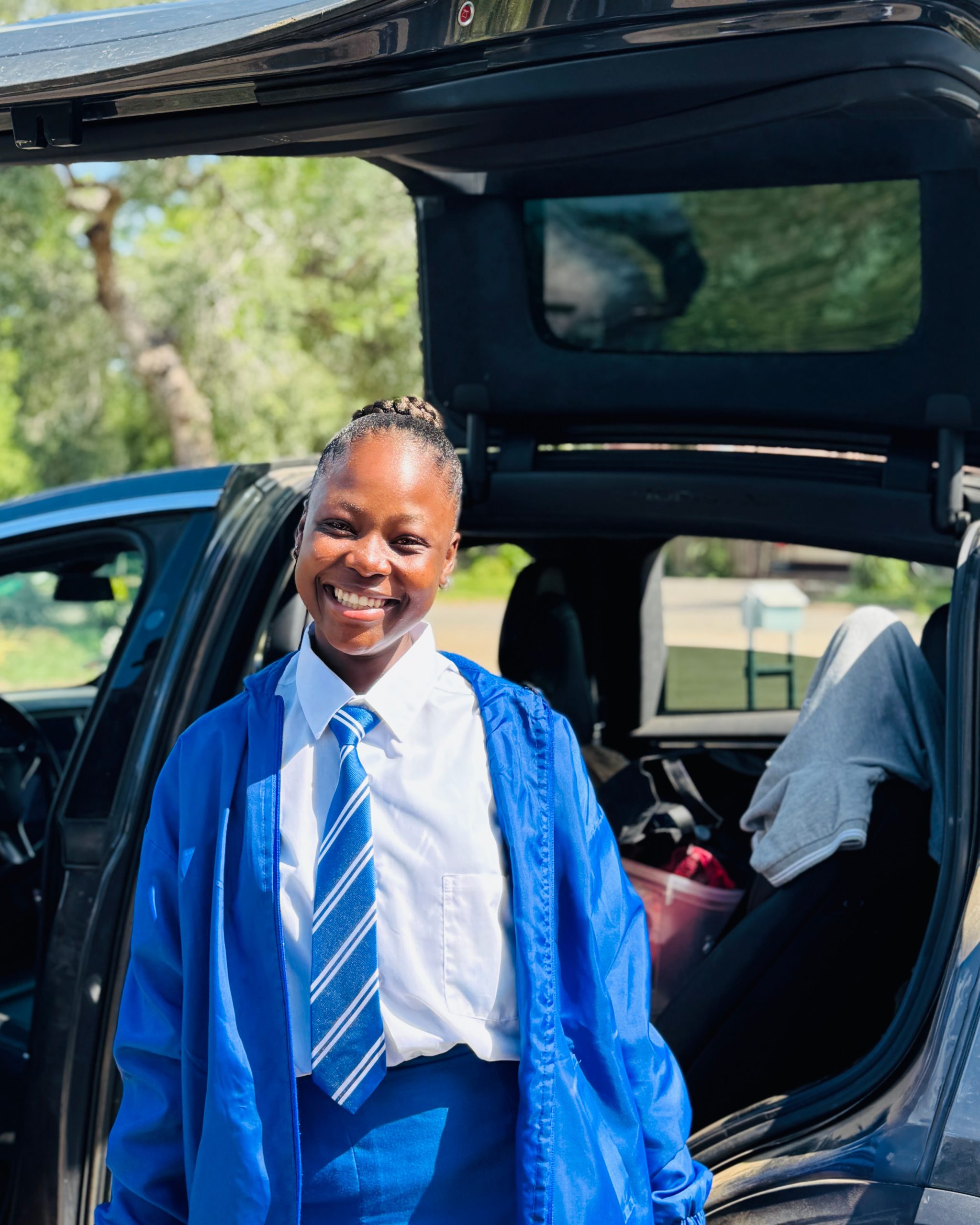
You may be wondering why Acacia Malope from Sokisi High is standing in front of a fancy car, and how it ties into a Kruger National Park experience… An unexpected highlight of the day was encountering the world’s largest solar-powered vehicle (The Solar Butterfly) that is currently on a 4-year-journey around the world. Our Future Rangers couldn’t resist the urge to connect with the owner of the Tesla, asking to be photographed with the car, while learning about the power of renewable energy.
To provide the Future Rangers with this classic Kruger experience is not only a proud achievement but the start of a tradition we intend to uphold as the program continues to grow.
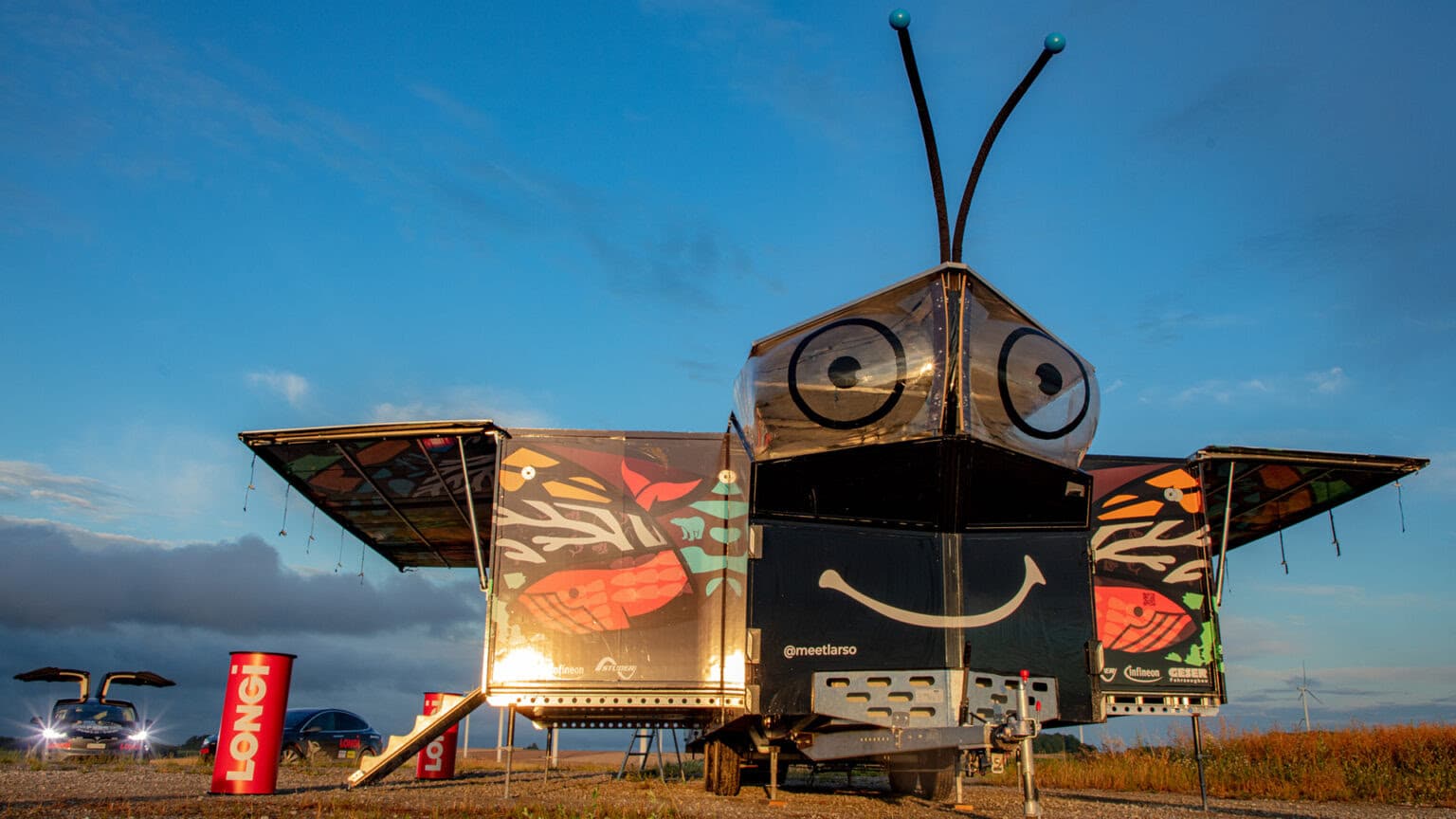
School-Based Lessons
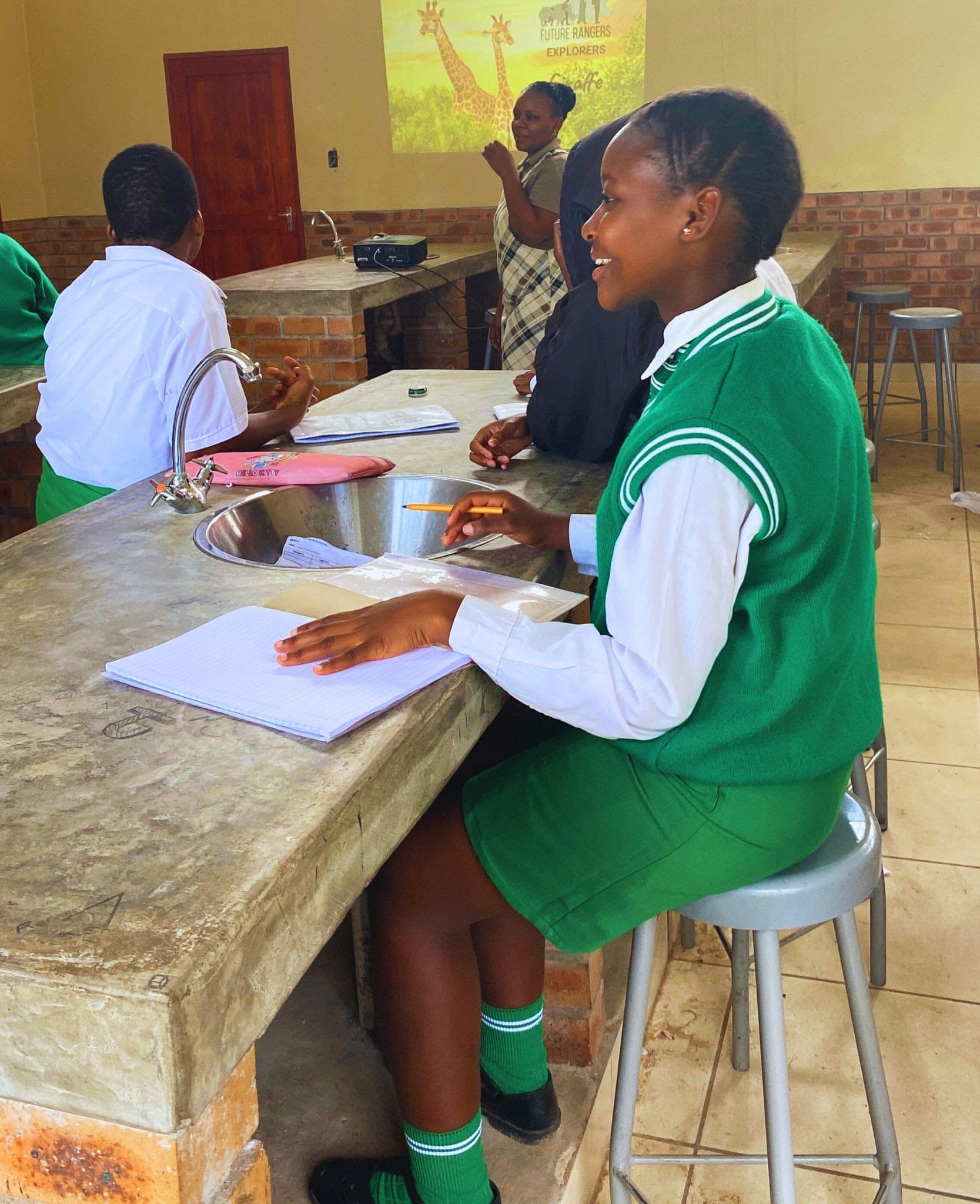
February marked the launch of our 2025 classroom-based lessons. The program follows a modular approach, with each lesson focusing on a specific species. This flexible structure allows us to adapt to the interests and curiosities of our learners.
Explorer (grades 8 & 9) lessons alternate between English and Tsonga, while Ambassadors are encouraged to engage exclusively in English. Writing and speaking exercises are integrated into most lessons, fostering the essential skill of effective communication.
The Explorer cohorts were introduced to the fundamentals of environmental education, delving into lessons on giraffes and the brown snake eagle. Laptops and projector screens serve as our primary teaching tools, enriching the learning experience with multimedia elements.
Meanwhile, the Ambassador cohorts explored more advanced topics related to these species, along with an additional lesson on the buffalo thorn tree. At Sokisi High School, the Ambassadors undertook a hands-on mission to locate the tree within the school’s surroundings. Their efforts were met with success as they identified the species and examined its leaves and distinctive thorns firsthand.
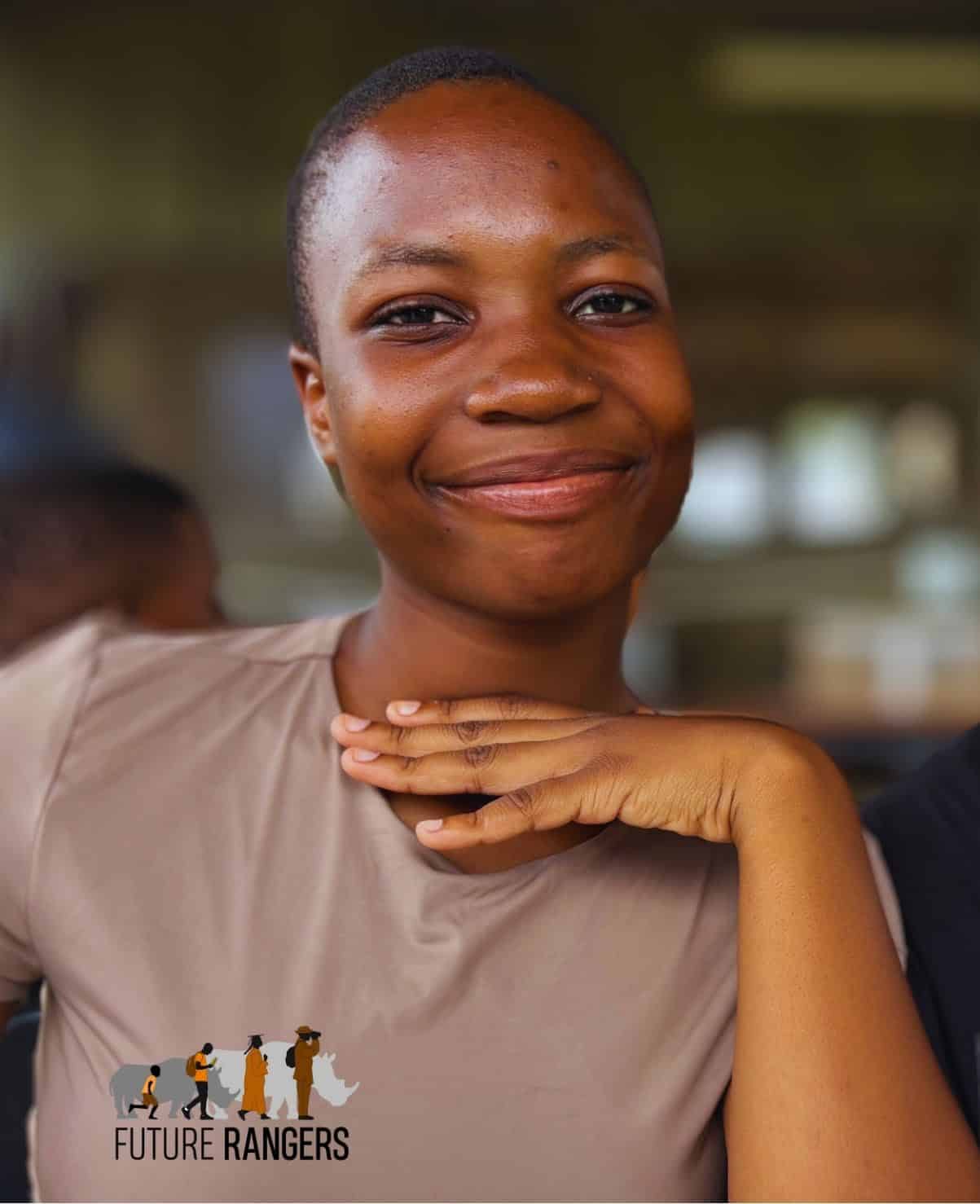
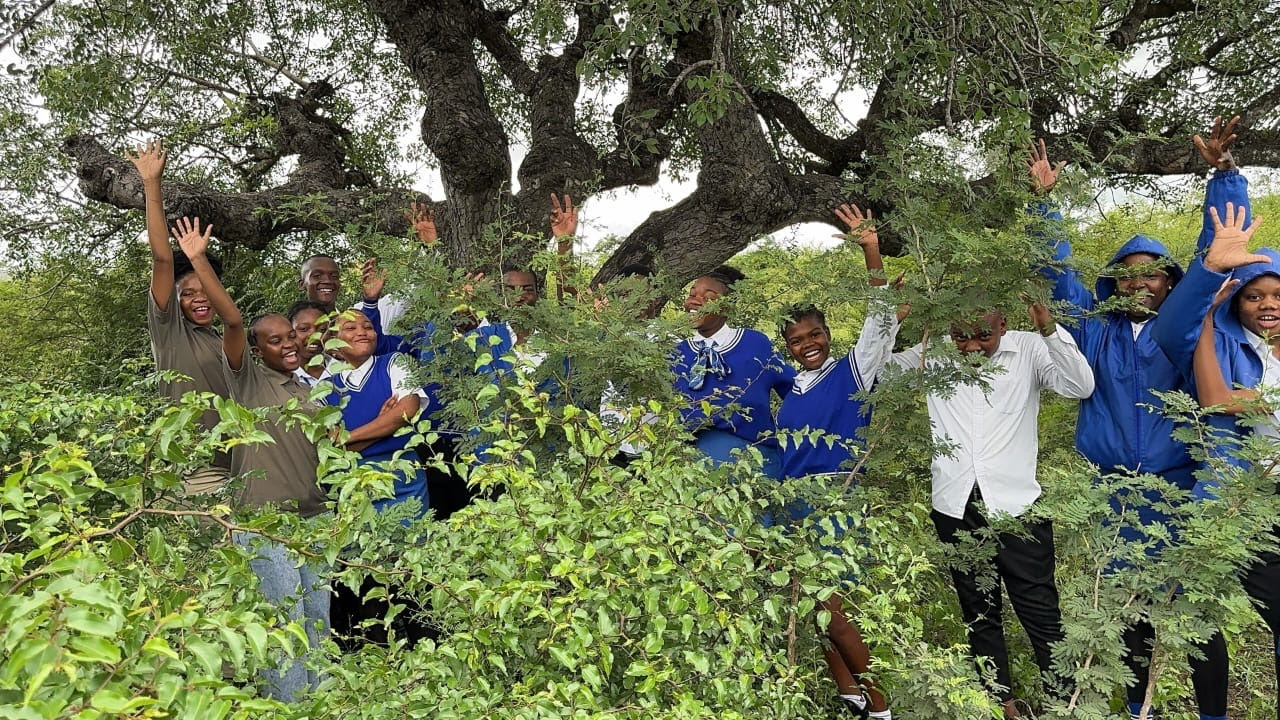
To add to the vehicle’s capabilities, the Lumsden Family kindly donated specific funds to cover an engine upgrade, improved air conditioning, and the vital necessity of comprehensive insurance. On the ground, a massive thank you to Trophy Toyota Tzaneen for giving us a generous discount and funding the costs of a fully branded vehicle with the talented TZN Print Co. With this new set of wheels, we’re no longer limited by transportation challenges. We can visit schools more frequently, provide hands-on conservation experiences to more students, and ensure that every Future Ranger has access to the programs that inspire them to protect our planet. This is a major step forward for GCC, and we’re excited to see where the road takes us next!
This month, the Graduates (grade 12) have been engaged in career aptitude assessments and research activities while we continue forging connections to secure conservation-focused job-shadowing opportunities in the community. A special mention goes to Sokisi High School Graduate, Pricilla Thobela, whose poise and determination shone in an impromptu debate exercise. Pricilla exemplifies resilience in her pursuit of success, and we remain committed to supporting her on this journey.
FRP Embark on FGASA Studies
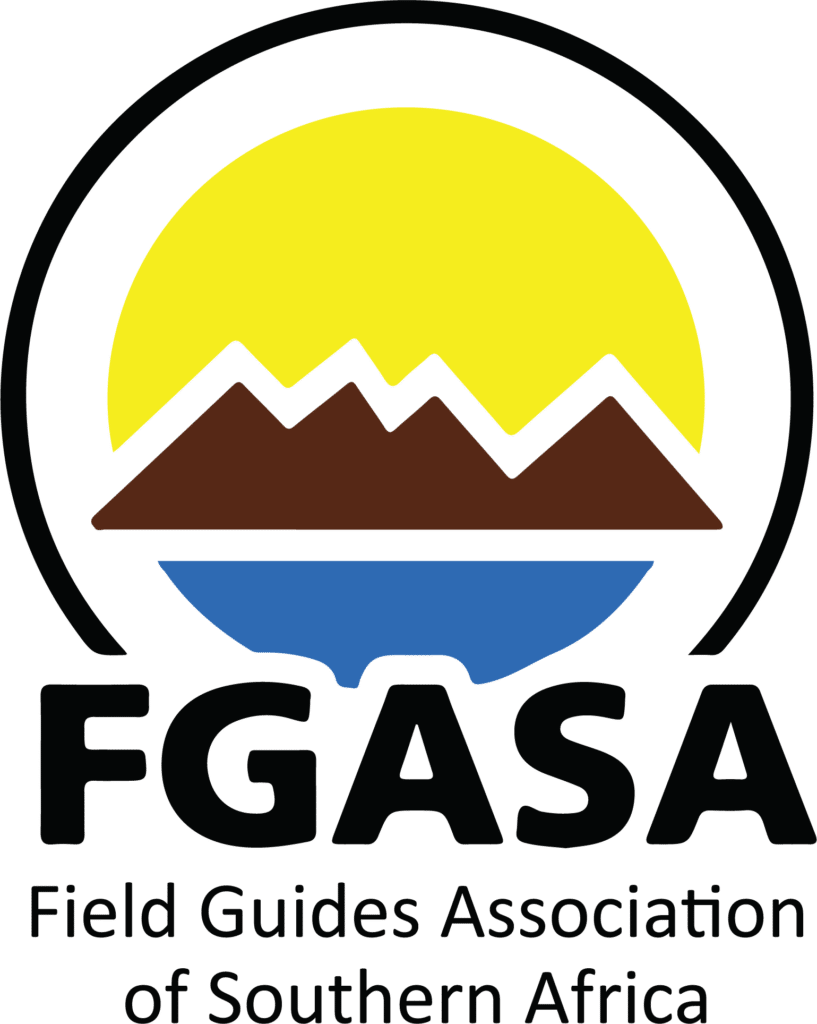
The FGASA (Field Guides Association of South Africa) Apprentice Field Guide Qualification is a sought-after stepping stone into the world of wildlife conservation. It is a recognized and respected qualification in the guiding and ecotourism sectors across Southern Africa, setting the industry standard for safari guides. Many lodges, reserves, and tour operators require guides to have at least an NQF2 qualification to lead professional game drives and nature walks.
It is therefore unsurprising that our dedicated teaching team has eagerly committed to this course in order to enhance their skills and knowledge, ultimately benefiting our Future Rangers students. The qualification consists of a theory exam as well as a practical assessment. The 17 different modules range from Guiding Practices to Plants and Grasses to Astronomy. Lefa, Aritah, Promise and Qoli (left to right below) are well underway with preparations to write the exam on the 24th May, with study sessions and practice assessments falling into their already-intense weekly routine.
